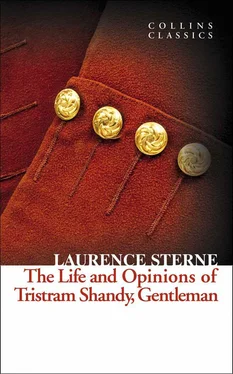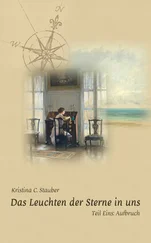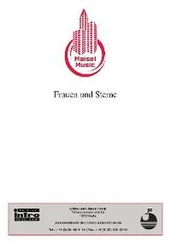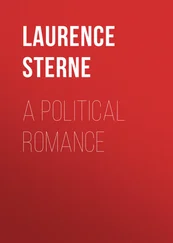So much for Corporal Trim’s body and legs.—He held the sermon loosely, not carelessly, in his left hand, raised something above his stomach, and detached a little from his breast;—his right arm falling negligently by his side, as nature and the laws of gravity ordered it,—but with the palm of it open and turned towards his audience, ready to aid the sentiment in case it stood in need.
Corporal Trim’s eyes and the muscles of his face were in full harmony with the other parts of him;—he looked frank,—unconstrained,—something assured,—but not bordering upon assurance.
Let not the critic ask how Corporal Trim could come by all this.—I’ve told him it should be explained;—but so he stood before my father, my uncle Toby, and Dr. Slop,—so swayed his body, so contrasted his limbs, and with such an oratorical sweep throughout the whole figure,—a statuary might have modelled from it;—nay, I doubt whether the oldest Fellow of a College,—or the Hebrew Professor himself, could have much mended it.
Trim made a bow, and read as follows:
The Sermon.
Hebrews xiii. 18.
—For we trust we have a good Conscience.
‘Trust!—Trust we have a good conscience!’
(Certainly, Trim, quoth my father, interrupting him, you give that sentence a very improper accent; for you curl up your nose, man, and read it with such a sneering tone, as if the Parson was going to abuse the Apostle.
He is, an’ please your Honour, replied Trim. Pugh! said my father, smiling.
Sir, quoth Dr. Slop, Trim is certainly in the right; for the writer (who I perceive is a Protestant) by the snappish manner in which he takes up the apostle, is certainly going to abuse him;—if this treatment of him has not done it already. But from whence, replied my father, have you concluded so soon, Dr. Slop, that the writer is of our church?—for aught I can see yet,—he may be of any church.—Because, answered Dr. Slop, if he was of ours,—he durst no more take such a licence,—than a bear by his beard:—If, in our communion, Sir, a man was to insult an apostle,—a saint,—or even the paring of a saint’s nail,—he would have his eyes scratched out.—What, by the saint? quoth my uncle Toby. No, replied Dr. Slop, he would have an old house over his head. Pray is the Inquisition an ancient building, answered my uncle Toby, or is it a modern one?—I know nothing of architecture, replied Dr. Slop.—An’ please your Honours, quoth Trim, the Inquisition is the vilest—Prithee spare thy description, Trim, I hate the very name of it, said my father.—No matter for that, answered Dr. Slop,—it has its uses; for tho’ I’m no great advocate for it, yet, in such a case as this, he would soon be taught better manners; and I can tell him, if he went on at that rate, would be flung into the Inquisition for his pains. God help him then, quoth my uncle Toby. Amen, added Trim; for Heaven above knows, I have a poor brother who has been fourteen years a captive in it.—I never heard one word of it before, said my uncle Toby, hastily:—How came he there, Trim?—O, Sir, the story will make your heart bleed,—as it has made mine a thousand times;—but it is too long to be told now;—your Honour shall hear it from first to last some day when I am working beside you in our fortifications;—but the short of the story is this;—That my brother Tom went over a servant to Lisbon,—and then married a Jew’s widow, who kept a small shop, and sold sausages, which somehow or other, was the cause of his being taken in the middle of the night out of his bed, where he was lying with his wife and two small children, and carried directly to the Inquisition, where, God help him, continued Trim, fetching a sigh from the bottom of his heart,—the poor honest lad lies confined at this hour; he was as honest a soul, added Trim, (pulling out his handkerchief) as ever blood warmed.—
—The tears trickled down Trim’s cheeks faster than he could well wipe them away.—A dead silence in the room ensued for some minutes.—Certain proof of pity!
Come Trim, quoth my father, after he saw the poor fellow’s grief had got a little vent,—read on,—and put this melancholy story out of thy head:—I grieve that I interrupted thee; but prithee begin the sermon again;—for if the first sentence in it is matter of abuse, as thou sayest, I have a great desire to know what kind of provocation the apostle has given.
Corporal Trim wiped his face, and returned his handkerchief into his pocket, and, making a bow as he did it,—he began again.)
The Sermon.
Hebrews xiii. 18.
—For we trust we have a good Conscience.—
‘Trust! trust we have a good conscience! Surely if there is any thing in this life which a man may depend upon, and to the knowledge of which he is capable of arriving upon the most indisputable evidence, it must be this very thing,—whether he has a good conscience or no.’
(I am positive I am right, quoth Dr. Slop.)
‘If a man thinks at all, he cannot well be a stranger to the true state of this account:—he must be privy to his own thoughts and desires;—he must remember his past pursuits, and know certainly the true springs and motives, which, in general, have governed the actions of his life.’
(I defy him, without an assistant, quoth Dr. Slop.)
‘In other matters we may be deceived by false appearances; and, as the wise man complains, hardly do we guess aright at the things that are upon the earth, and with labour do we find the things that are before us. But here the mind has all the evidence and facts within herself;—is conscious of the web she has wove;—knows its texture and fineness, and the exact share which every passion has had in working upon the several designs which virtue or vice has planned before her.’
(The language is good, and I declare Trim reads very well, quoth my father.)
‘Now,—as conscience is nothing else but the knowledge which the mind has within herself of this; and the judgment, either of approbation or censure, which it unavoidably makes upon the successive actions of our lives; ’tis plain you will say, from the very terms of the proposition,—whenever this inward testimony goes against a man, and he stands self-accused, that he must necessarily be a guilty man.—And, on the contrary, when the report is favourable on his side, and his heart condemns him not:—that it is not a matter of trust, as the apostle intimates, but a matter of certainty and fact, that the conscience is good, and that the man must be good also.’
(Then the apostle is altogether in the wrong, I suppose, quoth Dr. Slop, and the Protestant divine is in the right. Sir, have patience, replied my father, for I think it will presently appear that St. Paul and the Protestant divine are both of an opinion.—As nearly so, quoth Dr. Slop, as east is to west;—but this, continued he, lifting both hands, comes from the liberty of the press.
It is no more at the worst, replied my uncle Toby, than the liberty of the pulpit; for it does not appear that the sermon is printed, or ever likely to be.
Go on, Trim, quoth my father.)
‘At first sight this may seem to be a true state of the case: and I make no doubt but the knowledge of right and wrong is so truly impressed upon the mind of man,—that did no such thing ever happen, as that the conscience of a man, by long habits of sin, might (as the scripture assures it may) insensibly become hard;—and, like some tender parts of his body, by much stress and continual hard usage, lose by degrees that nice sense and perception with which God and nature endowed it:—Did this never happen;—or was it certain that self-love could never hang the least bias upon the judgment;—or that the little interests below could rise up and perplex the faculties of our upper regions, and encompass them about with clouds and thick darkness:—Could no such thing as favour and affection enter this sacred Court—Did Wit disdain to take a bribe in it;—or was ashamed to shew its face as an advocate for an unwarrantable enjoyment: Or, lastly, were we assured that Interest stood always unconcerned whilst the cause was hearing—and that Passion never got into the judgment-seat, and pronounced sentence in the stead of Reason, which is supposed always to preside and determine upon the case:—Was this truly so, as the objection must suppose;—no doubt then the religious and moral state of a man would be exactly what he himself esteemed it:—and the guilt or innocence of every man’s life could be known, in general, by no better measure, than the degrees of his own approbation and censure.
Читать дальше












